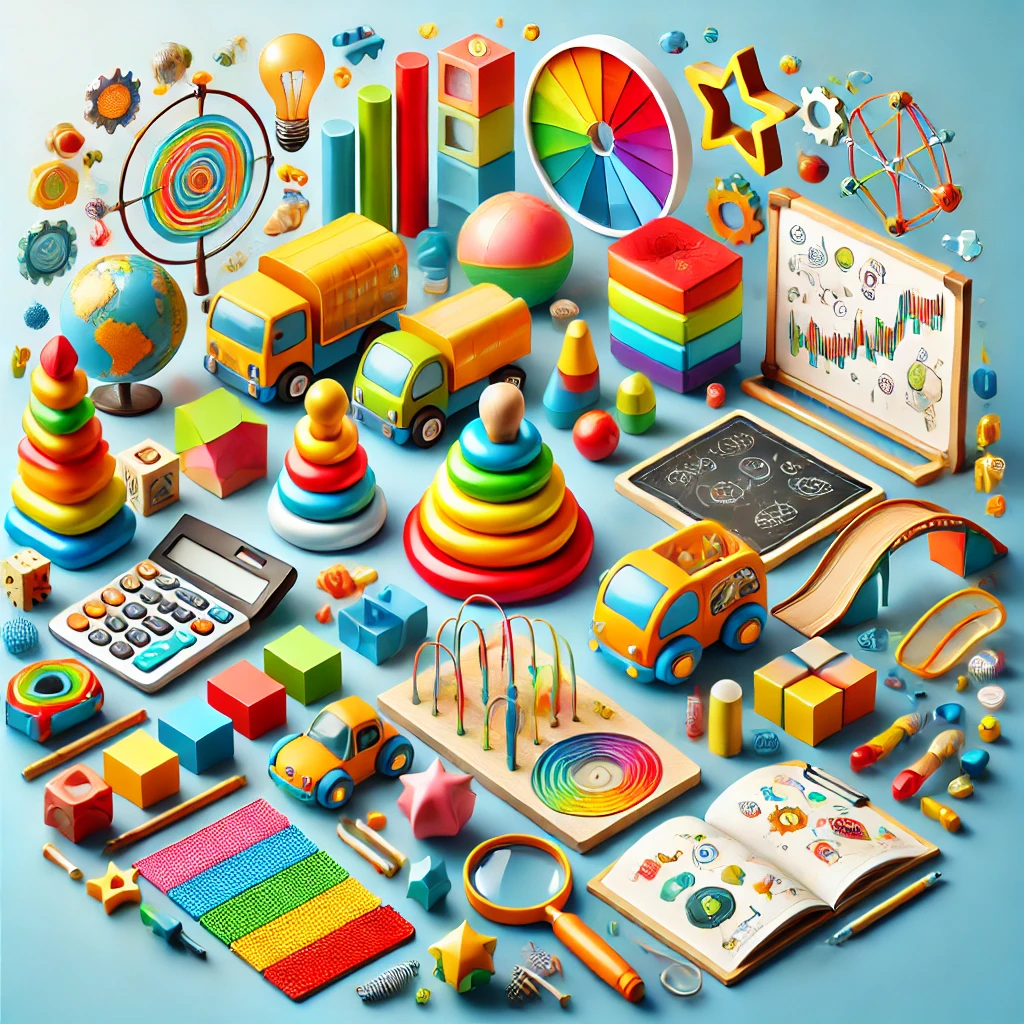
Educational Toys: The Key to Child Development and Healthy Parenting
Discover how the right toys can boost your child's learning, encourage creativity, and help you maintain a work-life balance.
Why Educational Toys Matter
Ever wondered why your kid learns better when playing with blocks than when listening to a lesson? That’s because kids absorb knowledge best through hands-on experiences. Educational toys make learning fun while enhancing cognitive, motor, and social skills.
How Educational Toys Support Child Development
1. Enhancing Cognitive Skills
From puzzles to STEM kits, educational toys stimulate critical thinking and problem-solving abilities, setting your child up for success.
2. Boosting Motor Skills
Building blocks, craft kits, and musical instruments improve hand-eye coordination and fine motor skills.
3. Encouraging Social Interaction
Board games and role-play sets teach kids teamwork, patience, and empathy—essential life skills.
Best Educational Tools for Kids in 2025
With technology evolving, traditional toys are getting an upgrade! Here are some of the best educational tools for kids in 2025:
- AI-powered interactive books
- Augmented reality (AR) learning apps
- STEM-based robotic kits
- Adaptive learning tablets
How to Encourage Creativity in Children with Educational Toys
Creativity isn’t just about drawing or music—it’s problem-solving, storytelling, and thinking outside the box. Toys like LEGO, art kits, and coding games can help unlock your child’s creative potential.
Affordable Ways to Create Fun Learning Activities
Who says learning has to be expensive? Here are budget-friendly ways to educate your child:
- DIY Science Experiments: Simple kitchen ingredients can turn into exciting chemistry lessons.
- Outdoor Adventures: Nature scavenger hunts are fun and educational.
- Recycled Craft Projects: Turn household items into creative masterpieces.
Top Tips for Managing Screen Time
Let’s be honest—screens are everywhere. But too much can be harmful. Here’s how to manage screen time effectively:
- Set daily limits and stick to them.
- Encourage screen-free activities like reading or outdoor play.
- Use educational apps instead of passive entertainment.
How to Maintain Work-Life Balance as a Parent
Parenting and working? It’s a juggling act! Here are some practical tips to help you maintain balance:
- Prioritize quality time over quantity.
- Set boundaries between work and family life.
- Use educational toys to keep kids engaged while you work.
Practical Advice for Raising Confident Children
Confidence is key to success. Build your child’s self-esteem by:
- Praising effort over results.
- Encouraging independence.
- Providing problem-solving opportunities through play.
How to Create a Positive Learning Environment at Home
Your home should be a place where learning thrives. Some simple ways to create a great learning space:
- Designate a quiet study area.
- Fill your home with books and puzzles.
- Encourage open discussions and curiosity.
Effective Communication with Teenagers
Teenagers can be tricky to talk to. Improve communication by:
- Listening without judgment.
- Encouraging open and honest conversations.
- Respecting their independence while setting boundaries.
Conclusion
Educational toys aren’t just playthings; they’re tools that shape your child’s development. As a parent, balancing work, life, and your child’s education can be tough, but with the right strategies—including fun learning activities, effective screen time management, and a positive learning environment—you can create a well-rounded, confident, and happy child.
FAQs
1. What are the best educational toys for toddlers?
Toys that improve motor skills, such as stacking rings, shape sorters, and musical instruments, are great for toddlers.
2. How can I encourage my child to use educational toys?
Make learning fun! Play with them, challenge them, and mix things up with new activities.
3. How much screen time is too much for kids?
Experts recommend no more than 1-2 hours of screen time per day for young children, with a focus on educational content.
4. What are some affordable educational toys?
Building blocks, flashcards, DIY craft kits, and board games offer great learning experiences without breaking the bank.
5. Can educational toys help with special needs children?
Yes! Sensory toys, fidget tools, and adaptive learning kits can support children with different learning needs.